
Co-founder 📊 @graphext . Data, Product, Business
Side projects: 📖 @calmdigest , 🧠 https://t.co/N4c77ih17x , 📷 https://t.co/SH0SjWlDbr
How to get URL link on X (Twitter) App


 Fijándonos sólo en los españoles menores de 40 años. Es curioso que los hombres de ideología más extrema (tanto de izquierda como derecha) son los que suelen reportar haber tenido más parejas sexuales distintas. Mientras que las mujeres, en general, tienden a tener menos parejas sexuales cuanto más de derechas son.
Fijándonos sólo en los españoles menores de 40 años. Es curioso que los hombres de ideología más extrema (tanto de izquierda como derecha) son los que suelen reportar haber tenido más parejas sexuales distintas. Mientras que las mujeres, en general, tienden a tener menos parejas sexuales cuanto más de derechas son.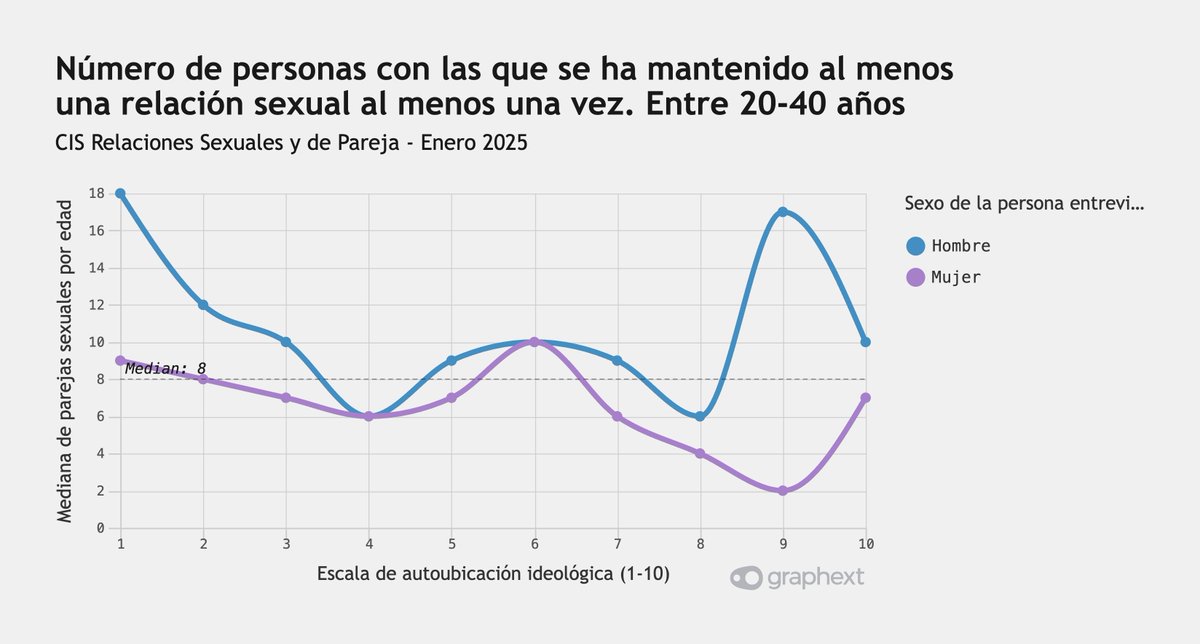

 Mientras que en hombres el fenómeno es muy distinto, aunque también se ve como en el grupo de 20 a 25 hay más proporción de bisexuales que en el de 25 a 30.
Mientras que en hombres el fenómeno es muy distinto, aunque también se ve como en el grupo de 20 a 25 hay más proporción de bisexuales que en el de 25 a 30. 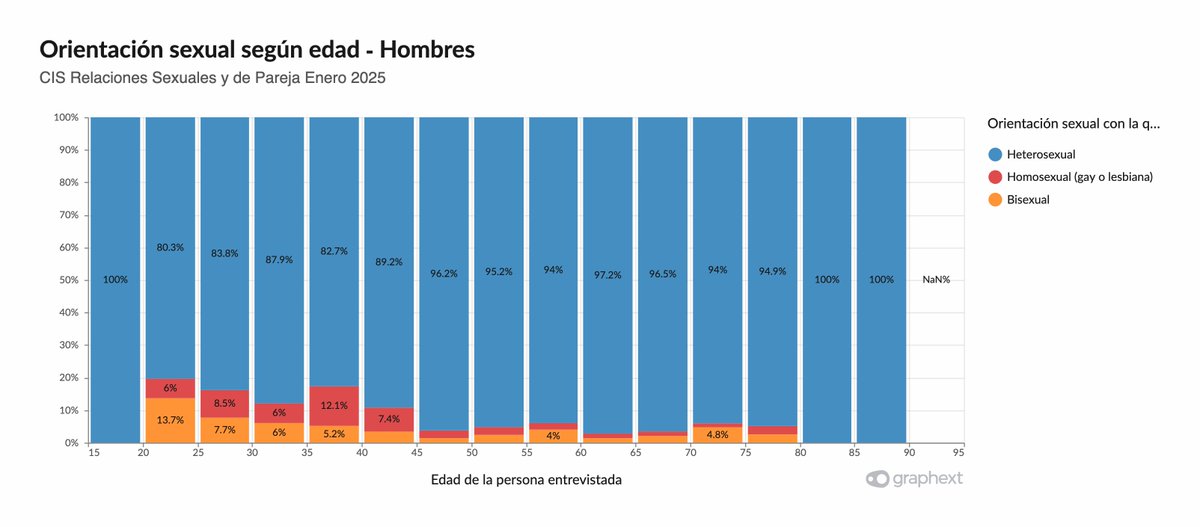

 Con sólo 10-20 min al día para leer es imposible leerte libros largos. No me enganchaba, ni aprendía nada. Pero hay un montón de artículos largos interesantes online (nuevos y viejunos) , que me suelo encontrar por aquí por Twitter, en Substack, en Hacker News, en The Atlantic, New Yoker...
Con sólo 10-20 min al día para leer es imposible leerte libros largos. No me enganchaba, ni aprendía nada. Pero hay un montón de artículos largos interesantes online (nuevos y viejunos) , que me suelo encontrar por aquí por Twitter, en Substack, en Hacker News, en The Atlantic, New Yoker...
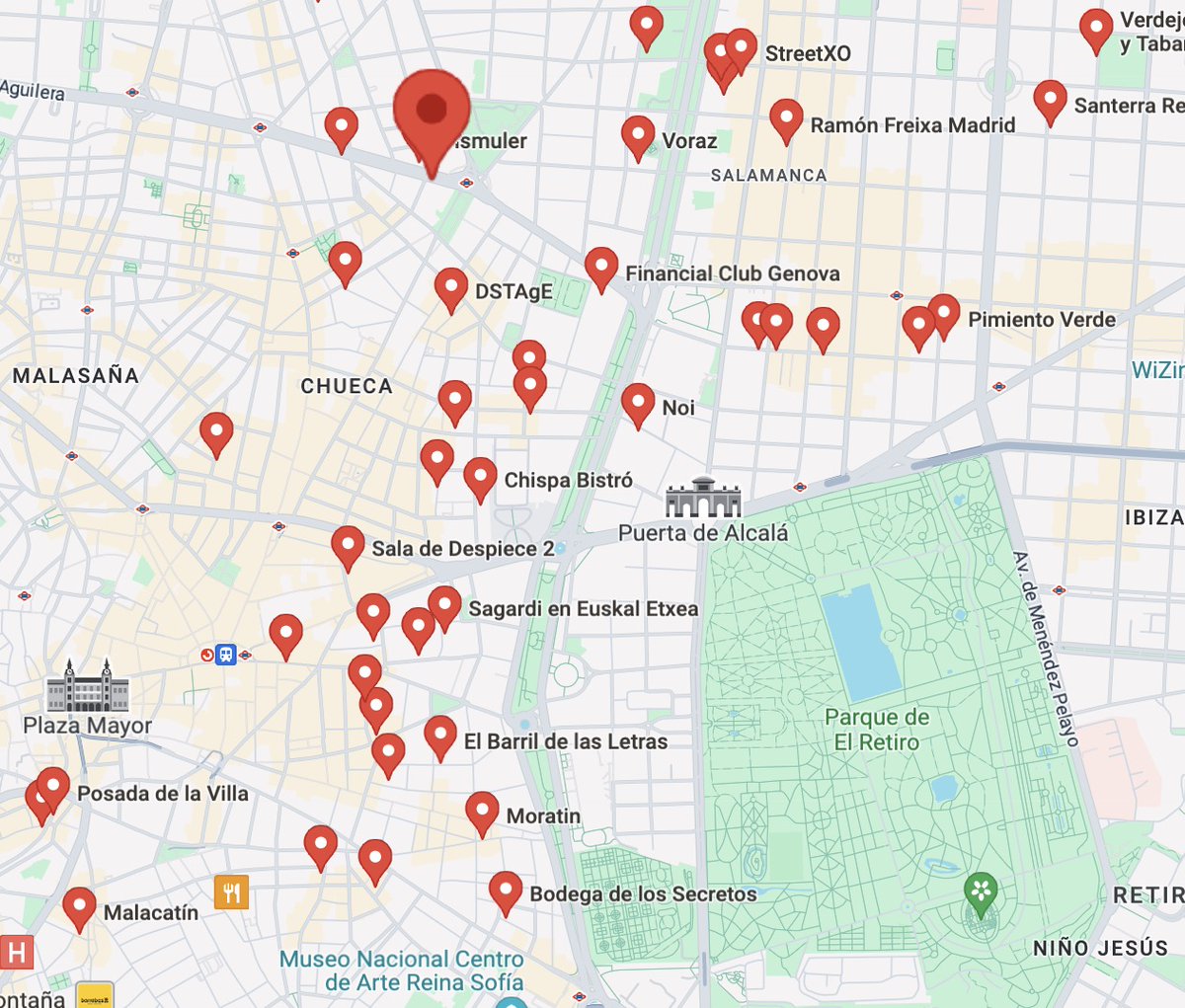
 Last night, I skeptically tried the new trendy premium kebab place in Madrid: Mómö. Honestly, it was delicious, the best kebab I've ever had. The chicken is grilled there with a delicate sauce that includes mint, curry, and other flavorful spices and vegetables. They offer free lemonade and water in a place that resembles an old Madrid metro station. maps.app.goo.gl/cfzEVRiNZ1yAb1…
Last night, I skeptically tried the new trendy premium kebab place in Madrid: Mómö. Honestly, it was delicious, the best kebab I've ever had. The chicken is grilled there with a delicate sauce that includes mint, curry, and other flavorful spices and vegetables. They offer free lemonade and water in a place that resembles an old Madrid metro station. maps.app.goo.gl/cfzEVRiNZ1yAb1…



 And, of course, the variable that best predicts who falls more into the paradox is whether or not you voted for the current government. Currently, voters whose personal economy is doing poorly but think the country's economy is doing well vote for PSOE, and those whose personal economy is doing well but see the country's economy as poor are PP voters.
And, of course, the variable that best predicts who falls more into the paradox is whether or not you voted for the current government. Currently, voters whose personal economy is doing poorly but think the country's economy is doing well vote for PSOE, and those whose personal economy is doing well but see the country's economy as poor are PP voters.
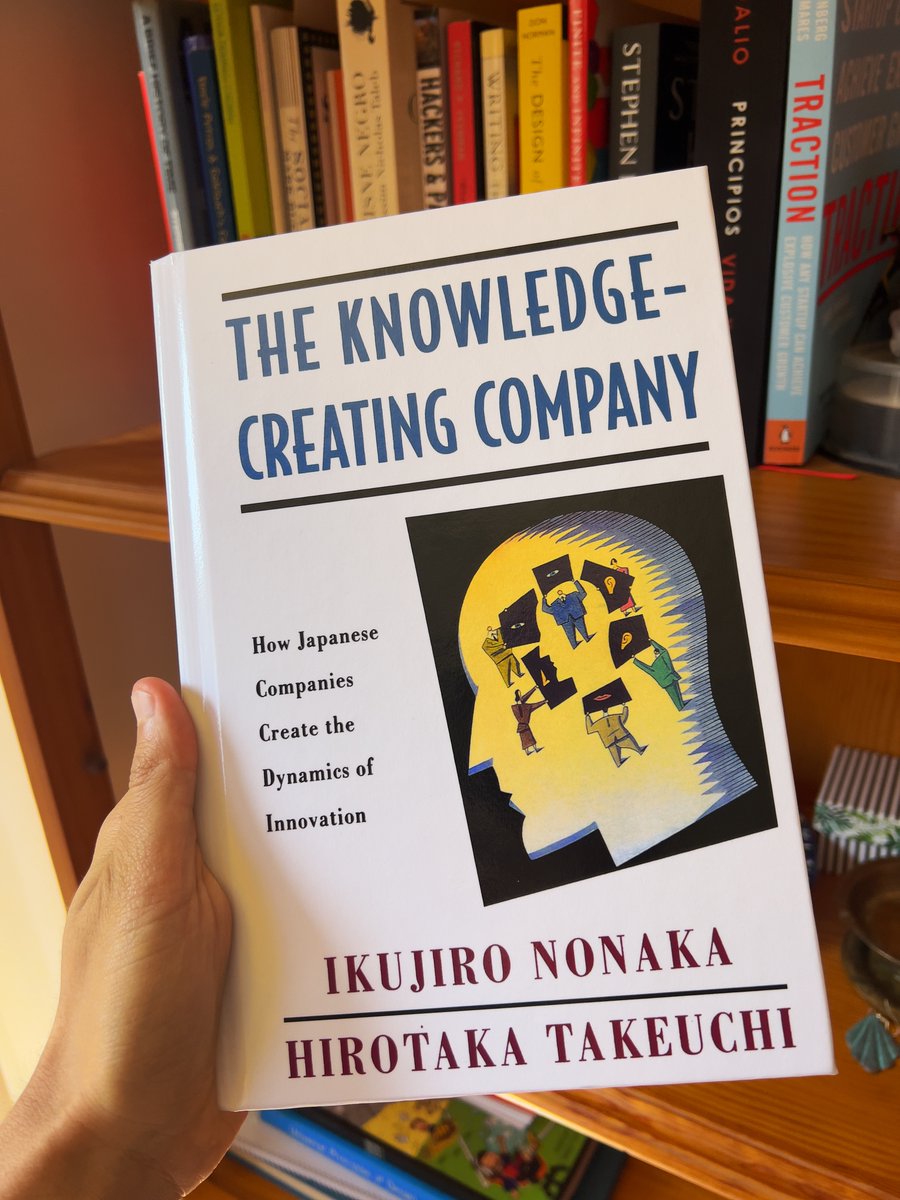
 The first step to converting tacit knowledge into explicit knowledge is to socialize it. Verbalize what you've learned with another colleague. Ideally, this should happen naturally and in the rawest possible form. And people should enjoy doing it.
The first step to converting tacit knowledge into explicit knowledge is to socialize it. Verbalize what you've learned with another colleague. Ideally, this should happen naturally and in the rawest possible form. And people should enjoy doing it.
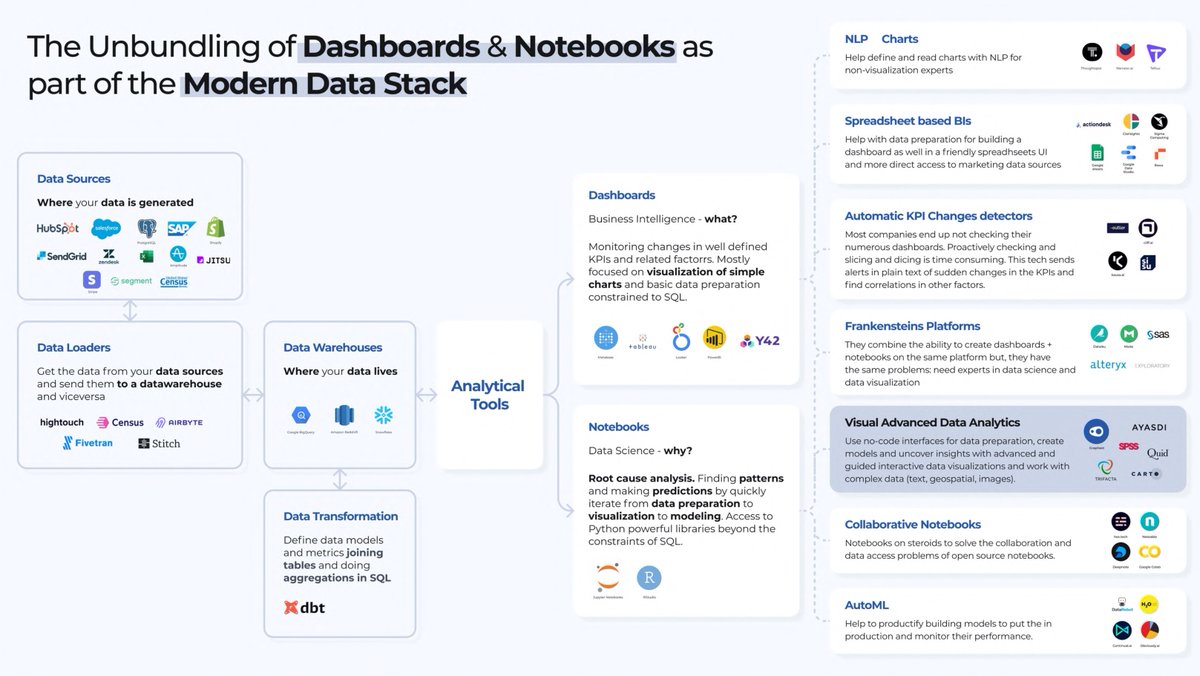

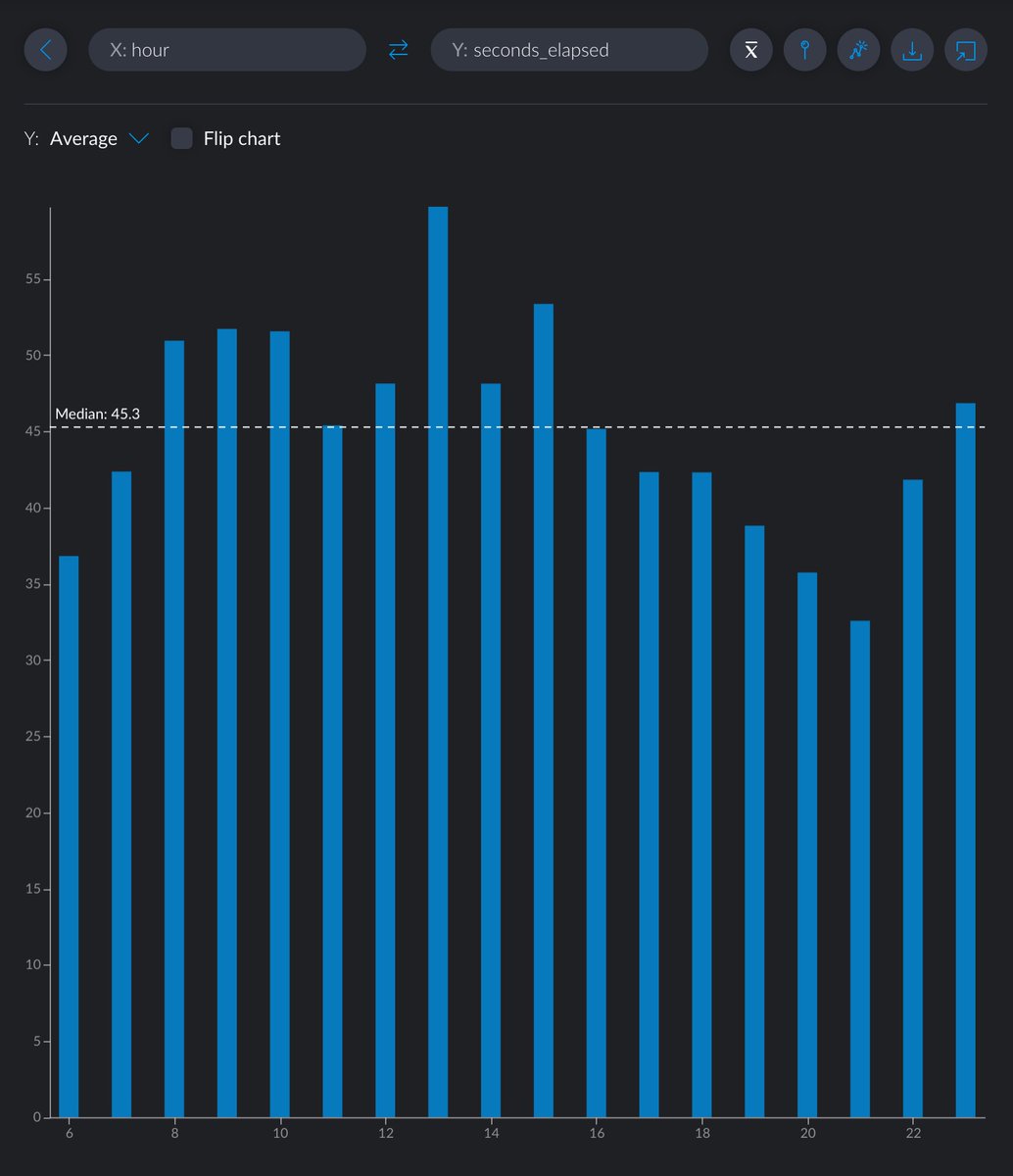
 Rize captures every single session I do on my laptop. Every time I jump from one app or web to another one, it records the time spent there and classifies them into categories following my own taxonomy.
Rize captures every single session I do on my laptop. Every time I jump from one app or web to another one, it records the time spent there and classifies them into categories following my own taxonomy.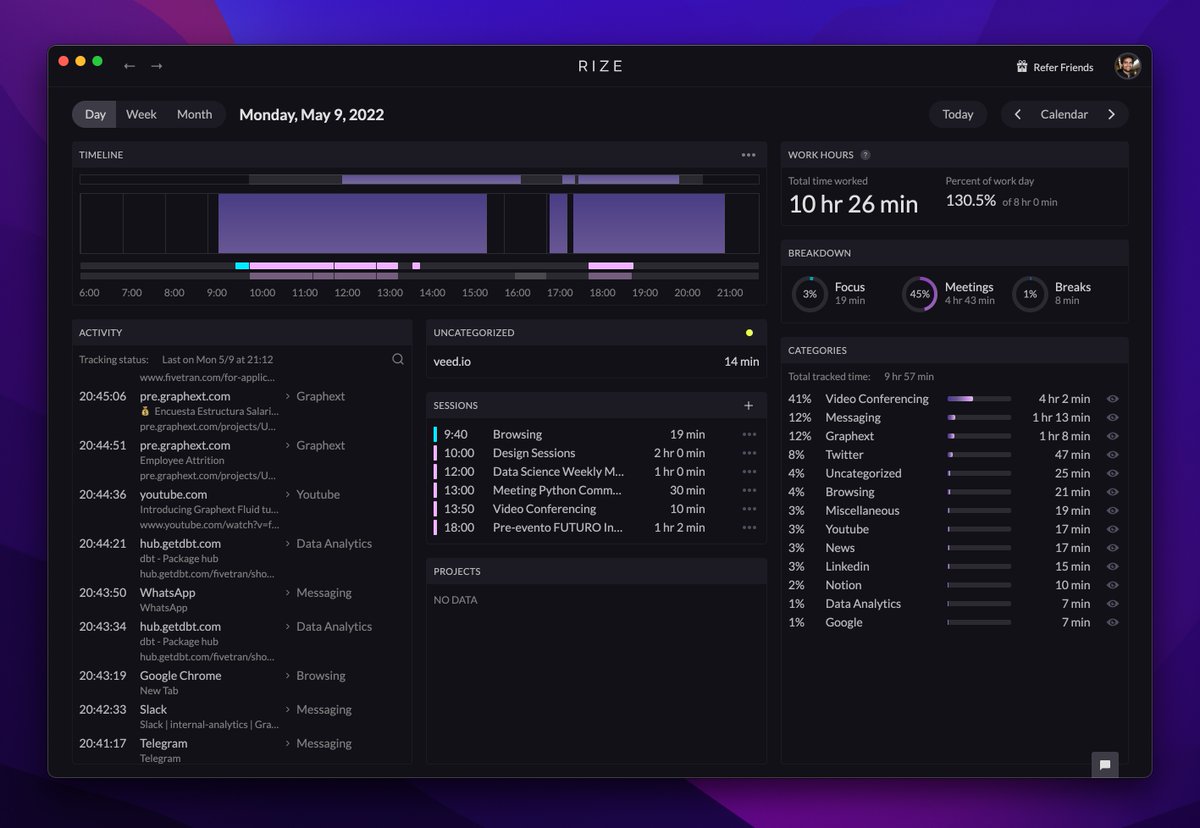
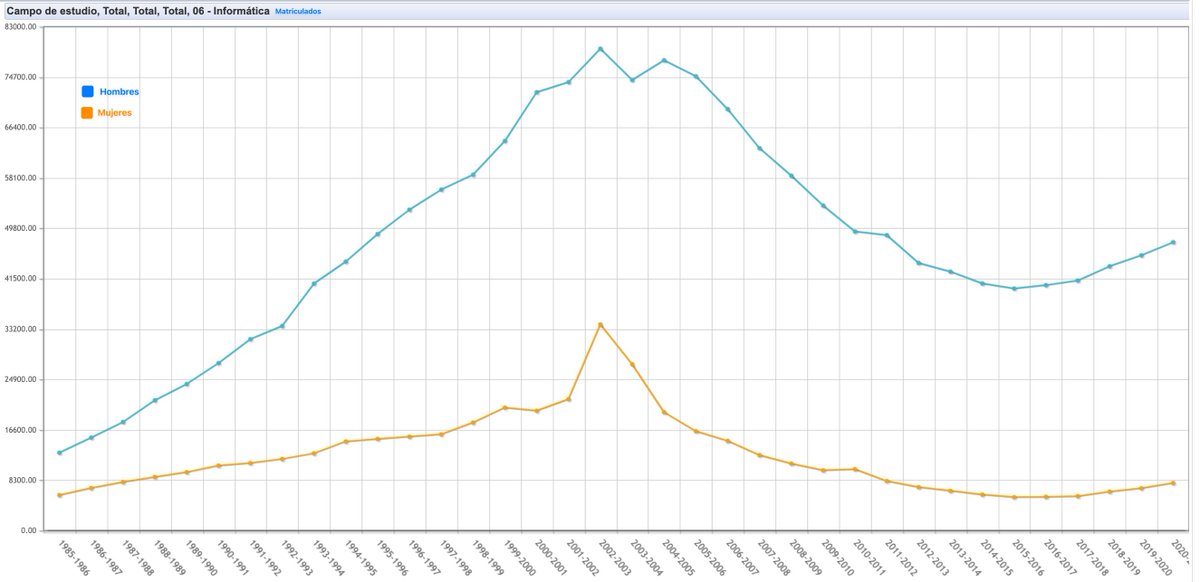
 ¿Por qué crecieron y cayeron mucho más rápido las matriculaciones de chicas entre 2001 y 2004 que la de chicos?
¿Por qué crecieron y cayeron mucho más rápido las matriculaciones de chicas entre 2001 y 2004 que la de chicos?
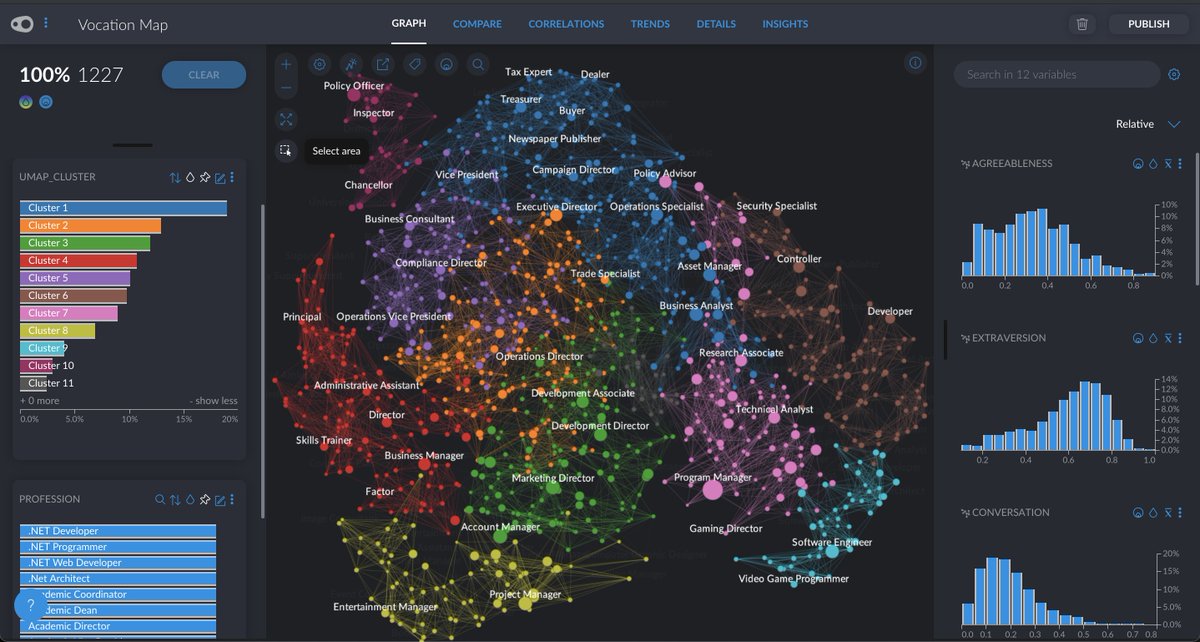
 Con unos cientos de tweets dicen poder predecir cómo de extrovertido, abierto a cambiar de opinión, a llevar la contraria etc etc es alguien... Como mucha gente pone en sus bios de Twitter a qué se dedican se puede sacar una buena muestra de cómo es la gente de cada profesión
Con unos cientos de tweets dicen poder predecir cómo de extrovertido, abierto a cambiar de opinión, a llevar la contraria etc etc es alguien... Como mucha gente pone en sus bios de Twitter a qué se dedican se puede sacar una buena muestra de cómo es la gente de cada profesión
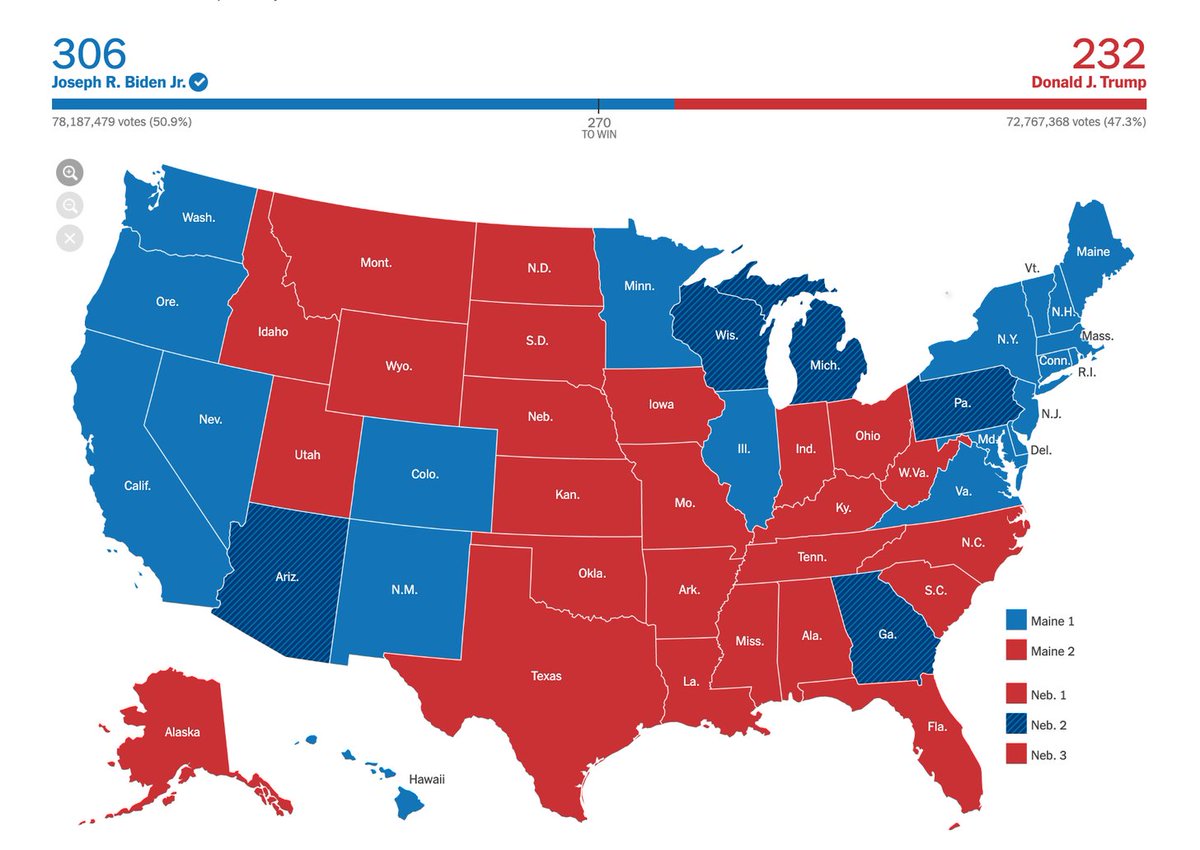




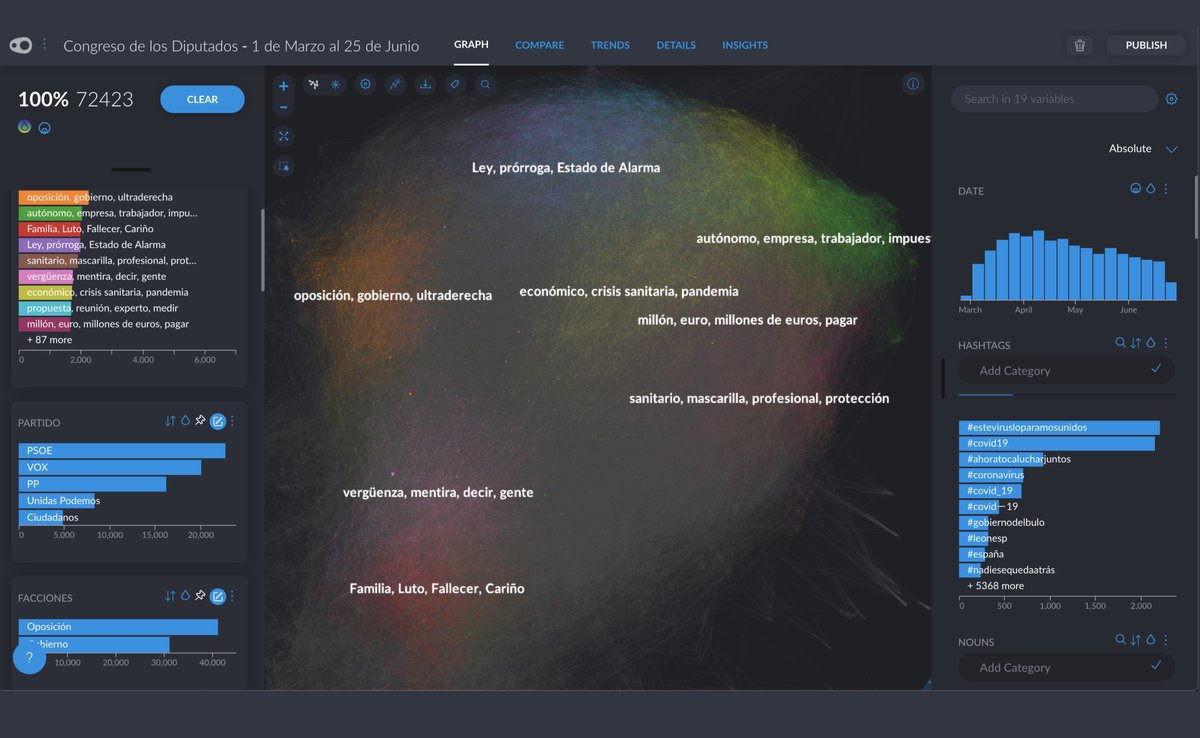
 VOX y Unidas Podemos son con diferencia los partidos que crean los tweets políticos más virales. Aunque los diputados de los viejos partidos escriben tanto como los de nuevos partidos, estos tienen significativamente muchos más diputados que crean mensajes que se viralizan más.
VOX y Unidas Podemos son con diferencia los partidos que crean los tweets políticos más virales. Aunque los diputados de los viejos partidos escriben tanto como los de nuevos partidos, estos tienen significativamente muchos más diputados que crean mensajes que se viralizan más. 

 - La narrativa nace de una cuenta irónica/humor
- La narrativa nace de una cuenta irónica/humor https://twitter.com/tortondo/status/1260662901943275521
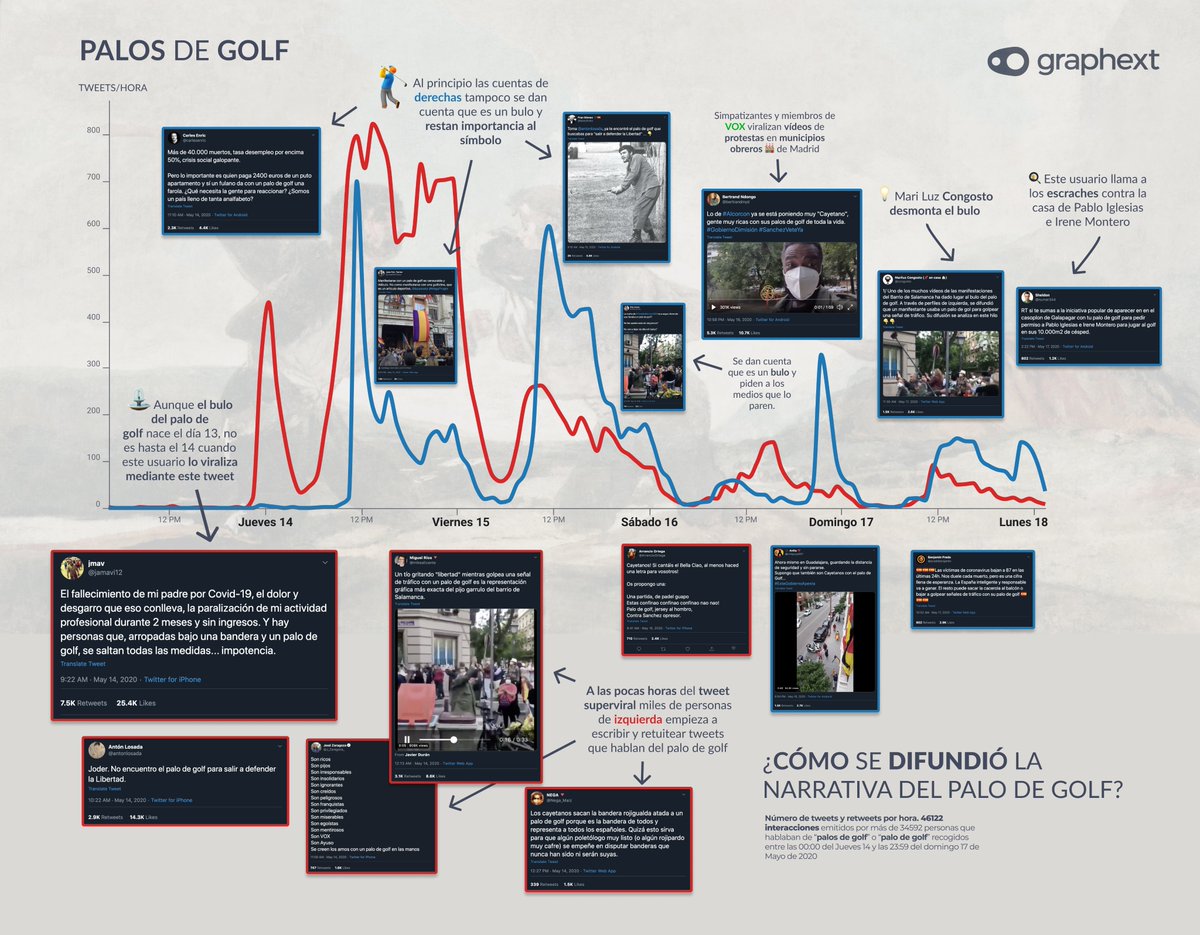

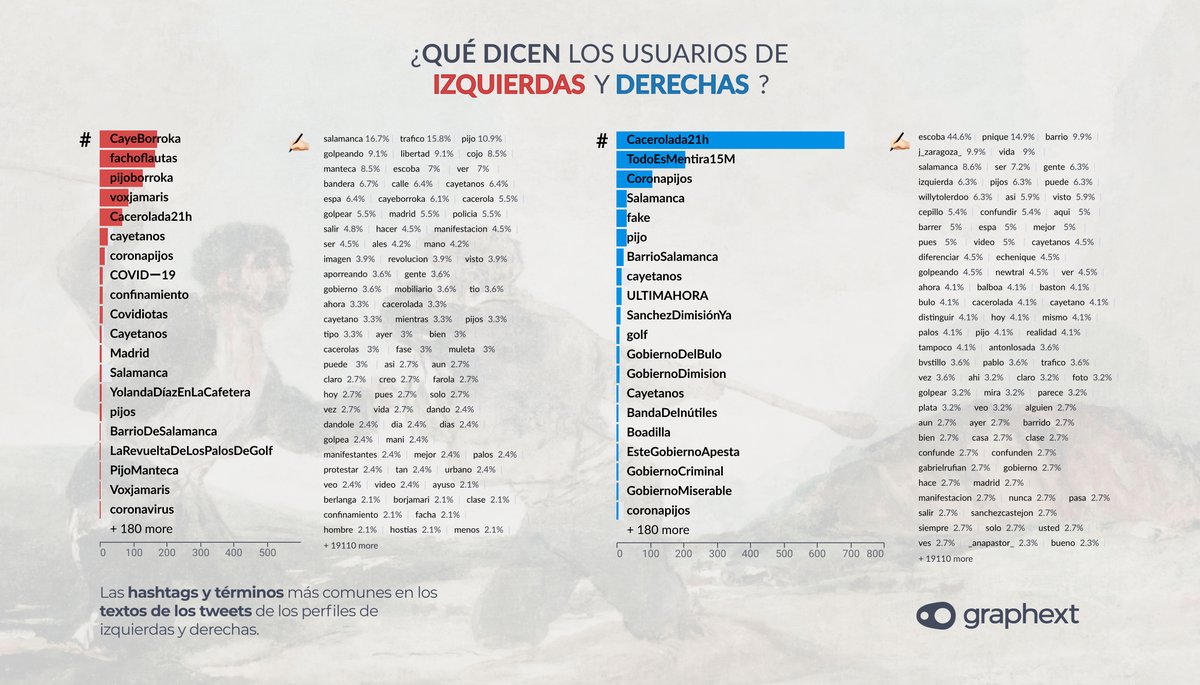


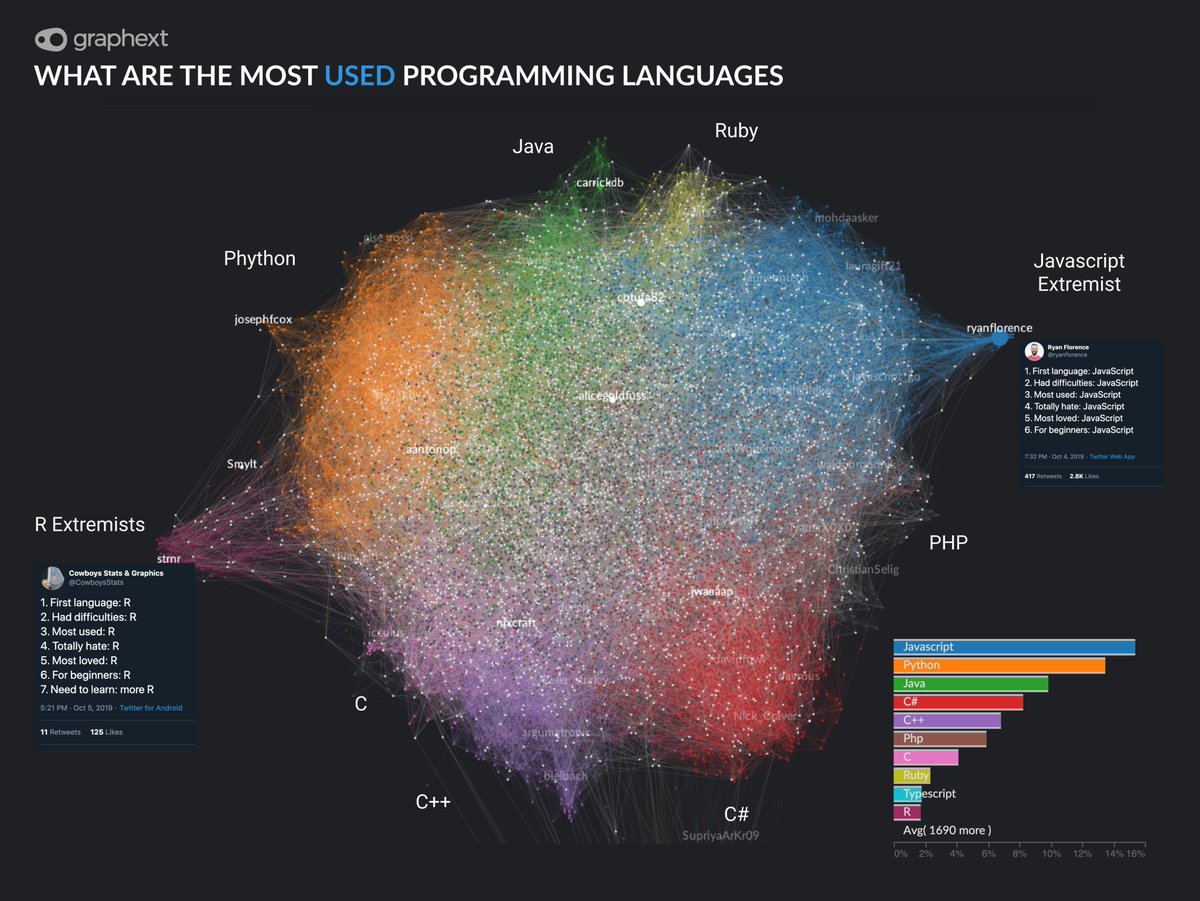

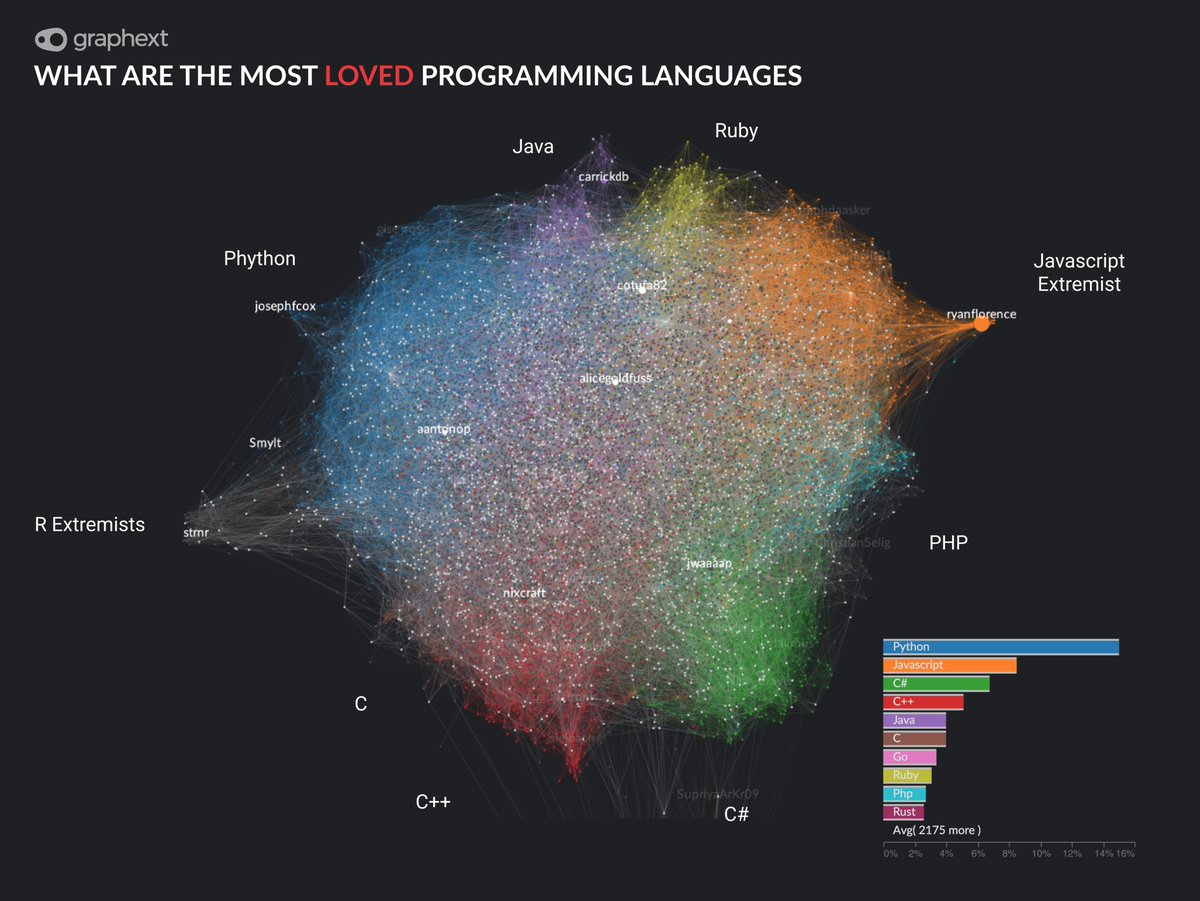
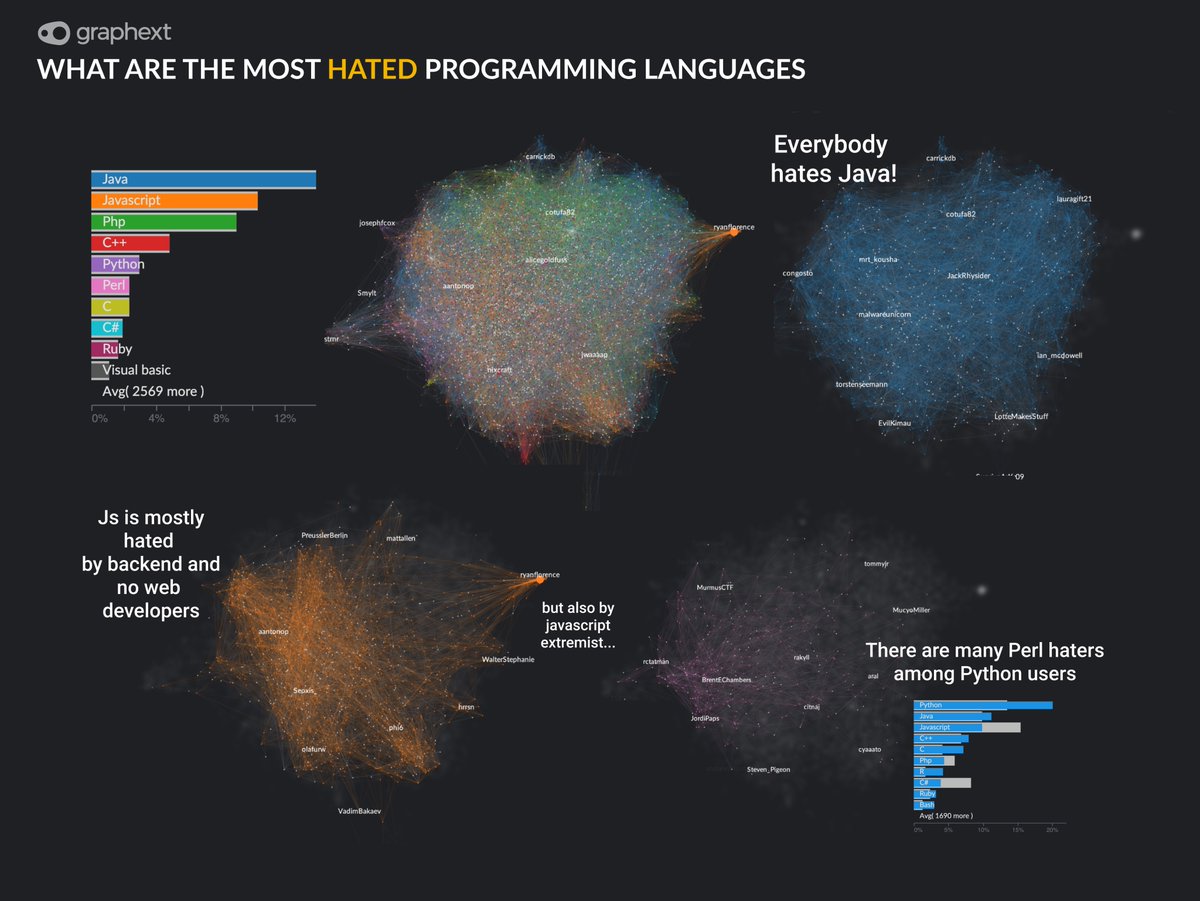
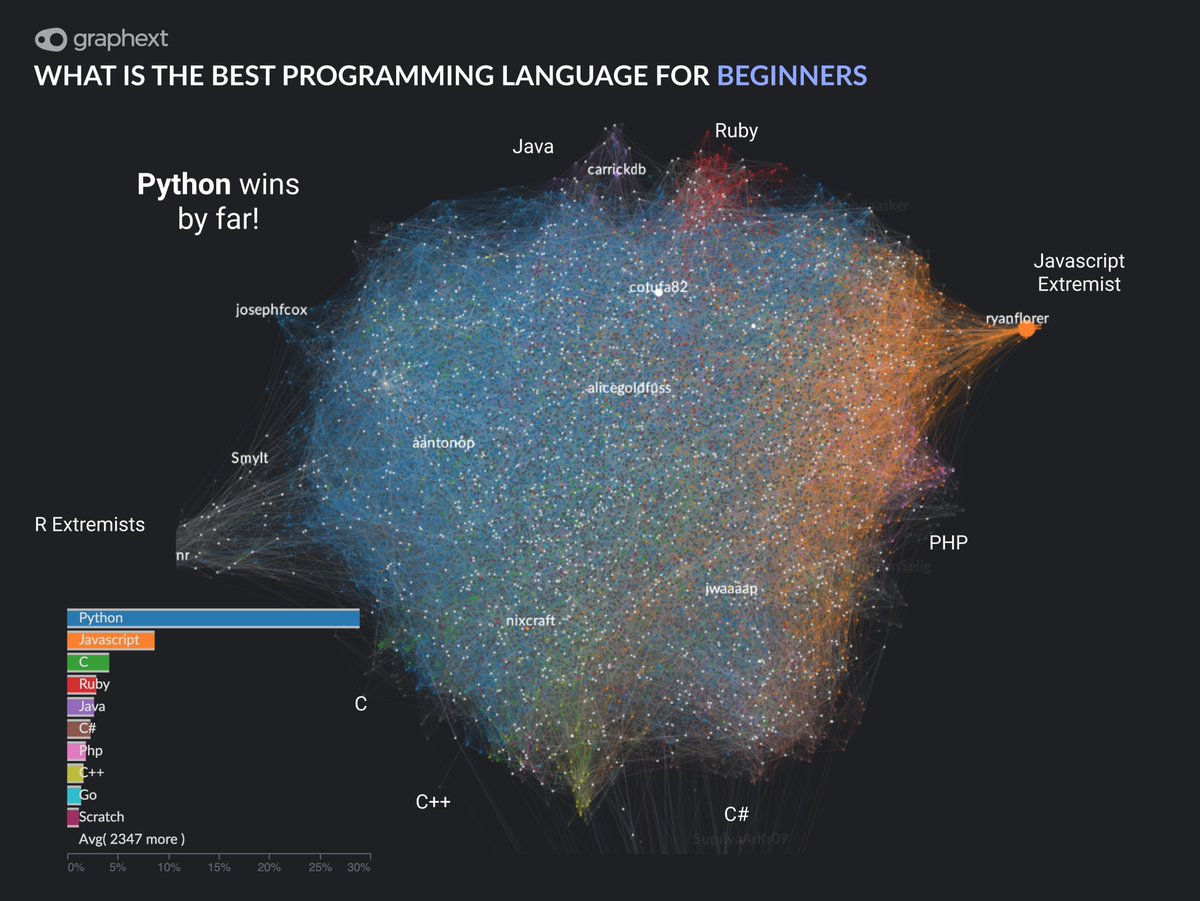 Cada nodo es una persona y su tweet, aquellas que contestaron de una manera parecida se conectan (lo calculan los algoritmo de reducción de dimensionalidad de @graphext ) En los extremos salen gente como @ryanflorence que nombraron un único lenguaje xD
Cada nodo es una persona y su tweet, aquellas que contestaron de una manera parecida se conectan (lo calculan los algoritmo de reducción de dimensionalidad de @graphext ) En los extremos salen gente como @ryanflorence que nombraron un único lenguaje xD https://twitter.com/ryanflorence/status/1180173845749125121